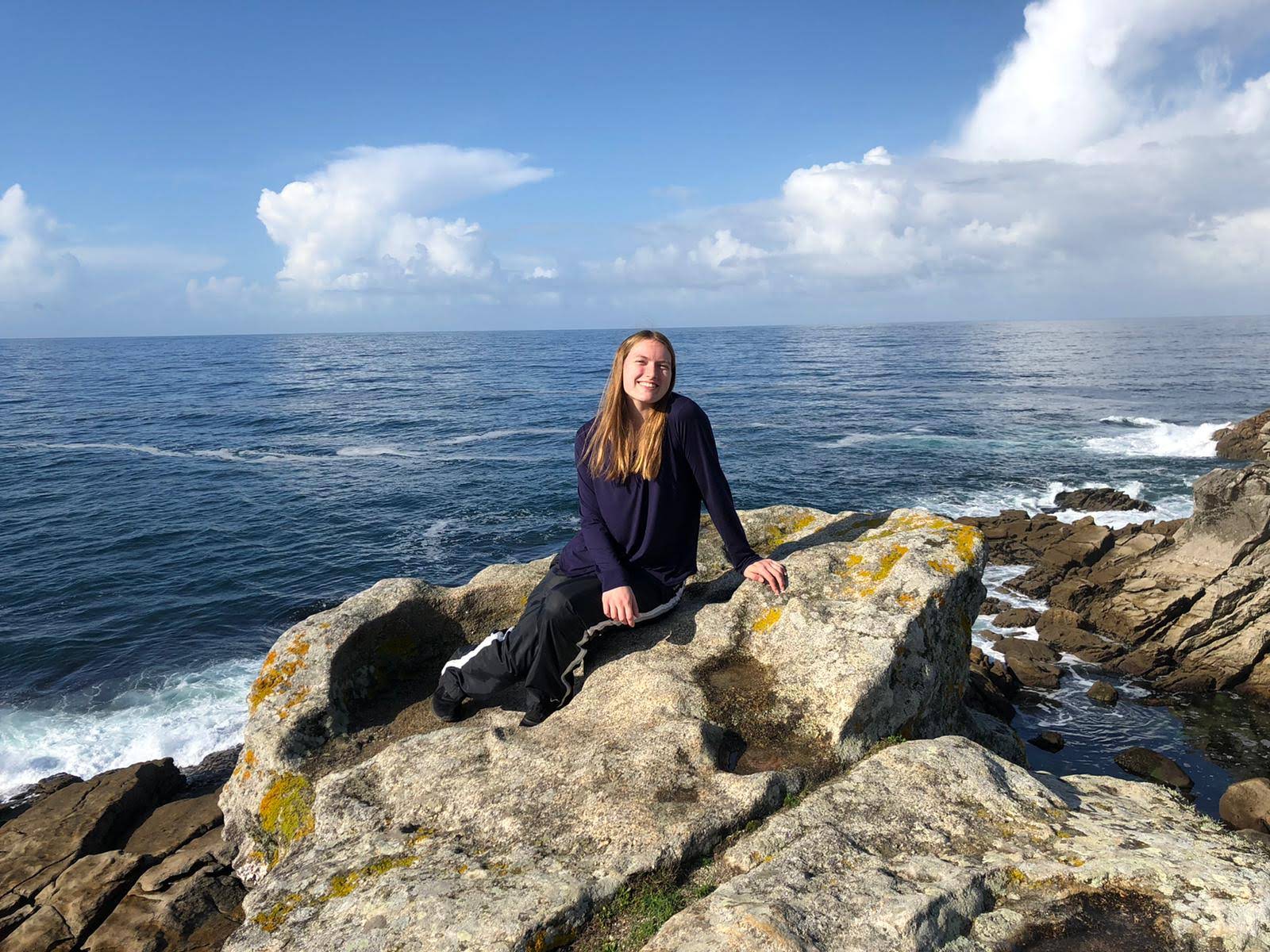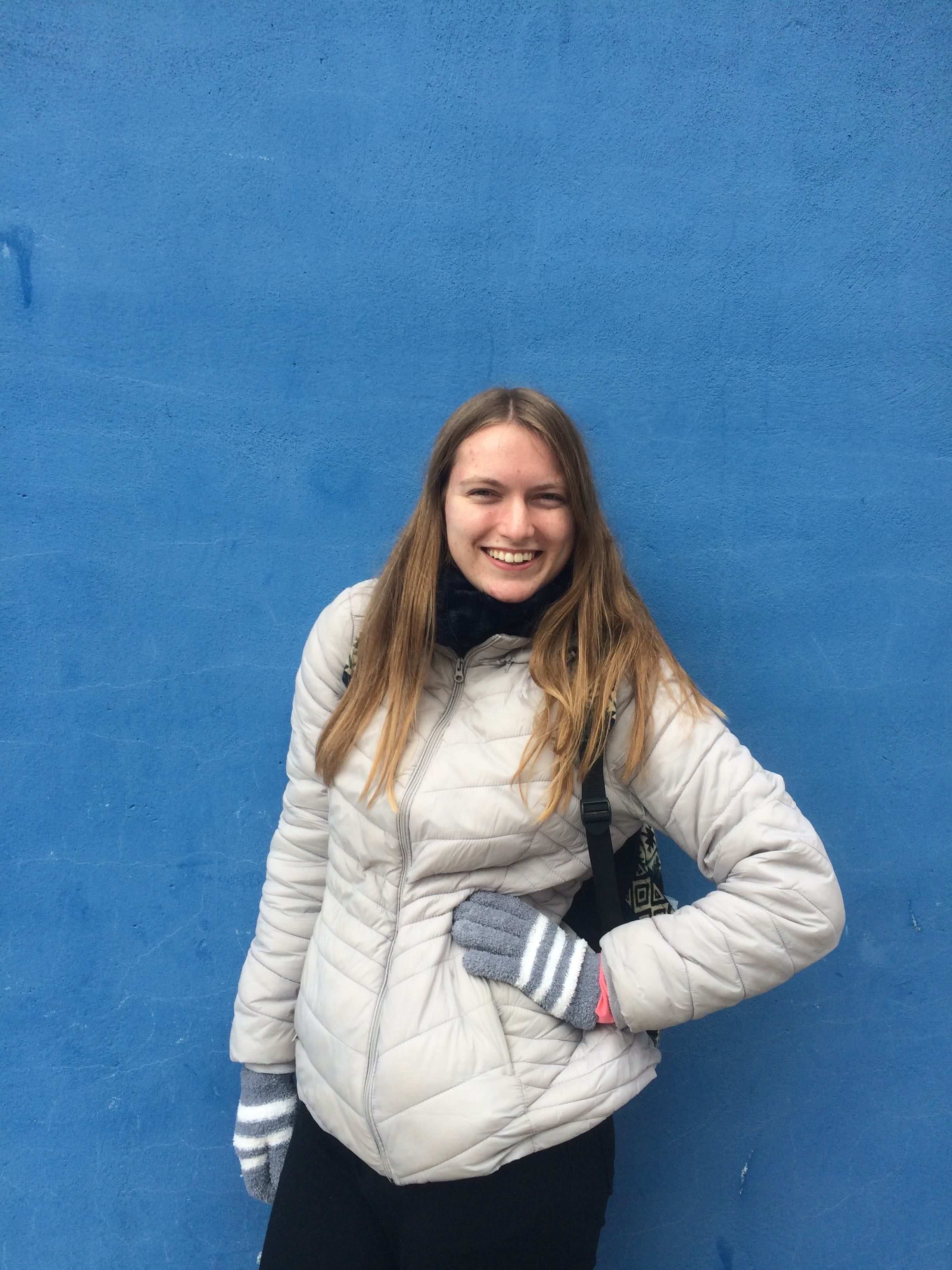See you later, Spain
Guest Post By: Senior studying Marketing, and CISB, Stephanie Douglas. Stephanie studied abroad this fall at León, Spain.
León, Spain is a beautiful city in Northern Spain where I’ve spent the past ten weeks. I’ve had an amazing time exploring the city, visiting museums, and eating delicious food. Aside from providing me with unforgettable memories and new friends, this study abroad experience has been fantastic for my Spanish. My classes, all of which were in Spanish, have been extremely effective in boosting my language skills. By staying with a host family, I was constantly exposed to the language and provided with opportunities to practice. My language abilities leaving Spain are miles—or should I say kilometers—ahead of where they were when I arrived.
My comprehension and vocabulary have improved tremendously, but another element of my Spanish that has developed relates to conjugating for an entirely new subject. In my Spanish classes, I had never learned the second-person plural informal form “vosotros,” since the U.S. teaches based on Latin American Spanish, which instead uses “ustedes” both formally and informally. In Spain vosotros is used frequently, and referring to people you know with the more formal ustedes can be off-putting. When I first arrived and didn’t know how to conjugate verbs in the vosotros form, I was chastised for using the ustedes variations. “Are you calling me old? You shouldn’t say that to a person unless they’re elderly.” “Don’t talk to me like that. We’re not strangers.” Language is powerful, and something as small as using formal “you” or informal “you” can make a big difference.
Something that I found interesting with the dialect, at least in Northern Spain, is that people do not pronounce the “d” in words that end in “ado.” For example, the word for supermarket, supermercado, ends with a syllable pronounced like the English word “cow.” Whereas I have made an effort to integrate vosotros conjugations into my speech, this dialectic trait is not something that I necessarily tried to emulate. However, being aware of this has helped with my understanding when speaking with locals.
While I anticipated many words that I had learned in class would be different in Castilian Spanish, even something as basic as “goodbye” has been a surprise. From what I’ve noticed, it’s very rare to hear “adiós” in Northern Spain. In León locals often say “chao” for farewell, adopted from the Italian “ciao.” And most frequently is “hasta luego,” meaning “see you later.” This can be used even if you will never see this person again. What I found most curious is that it is considered polite to say hasta luego when you leave a room, whether you interacted with the people in the room or not. It could be considered rude if you leave without saying anything. For example, one would never step out of an elevator without telling the others hasta luego. Even in public restrooms this occurs; if I’m washing my hands and someone leaves, they tell me hasta luego before exiting. This aspect of the culture is very different than what I’m used to in the United States. While at first I was confused, this interaction has become oddly comforting. It is a simple way to interact with those around you.
Throughout the quarter I’ve been able to visit several nearby cities, and it is noteworthy that within such short distances there are significant differences in communication. For instance, the northwestern autonomous community of Galicia neighbors the region of Castile & León, so from the city of León you could get to Galicia in less than two hours. However, once there you might notice a shift in languages. That’s because in Galicia they speak Galego/gallego, or in English: Galician. This language has a lot in common with both Castilian Spanish and Portuguese. Before visiting, we learned a few simple differences from Spanish, including how “el” and “la” (meaning “the”) become “o” and “a.” But everyone we interacted with also spoke Spanish. Moving east from León, we found ourselves in another location with a regional language. We spent a weekend in Basque Country, where they speak Euskara, or Basque. Euskara—in Spanish euskera—is linguistically isolated to any other living language. It was fascinating to see signs written in this language. Occasionally the words appeared similar to their Spanish counterparts, while other times they looked very different. For example the two towns we visited—Bilbao and San Sebastián—in euskera are called “Bilbo” and “Donastia,” respectively. Our weekend excursions were wonderful occasions to learn more about Spanish culture, and I have appreciated being able to hear a few of Spain’s multiple national languages.
My time in Spain has been incredibly influential and I am grateful to be taking away so many memories of this beautiful country. I am thankful for this opportunity, and to Spain I would say: ¡Hasta luego!

